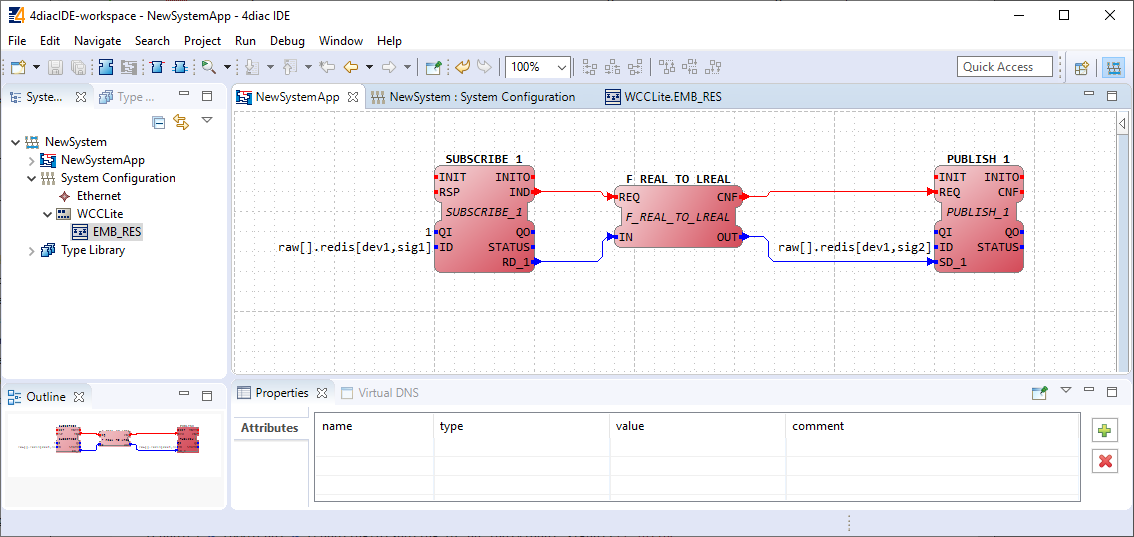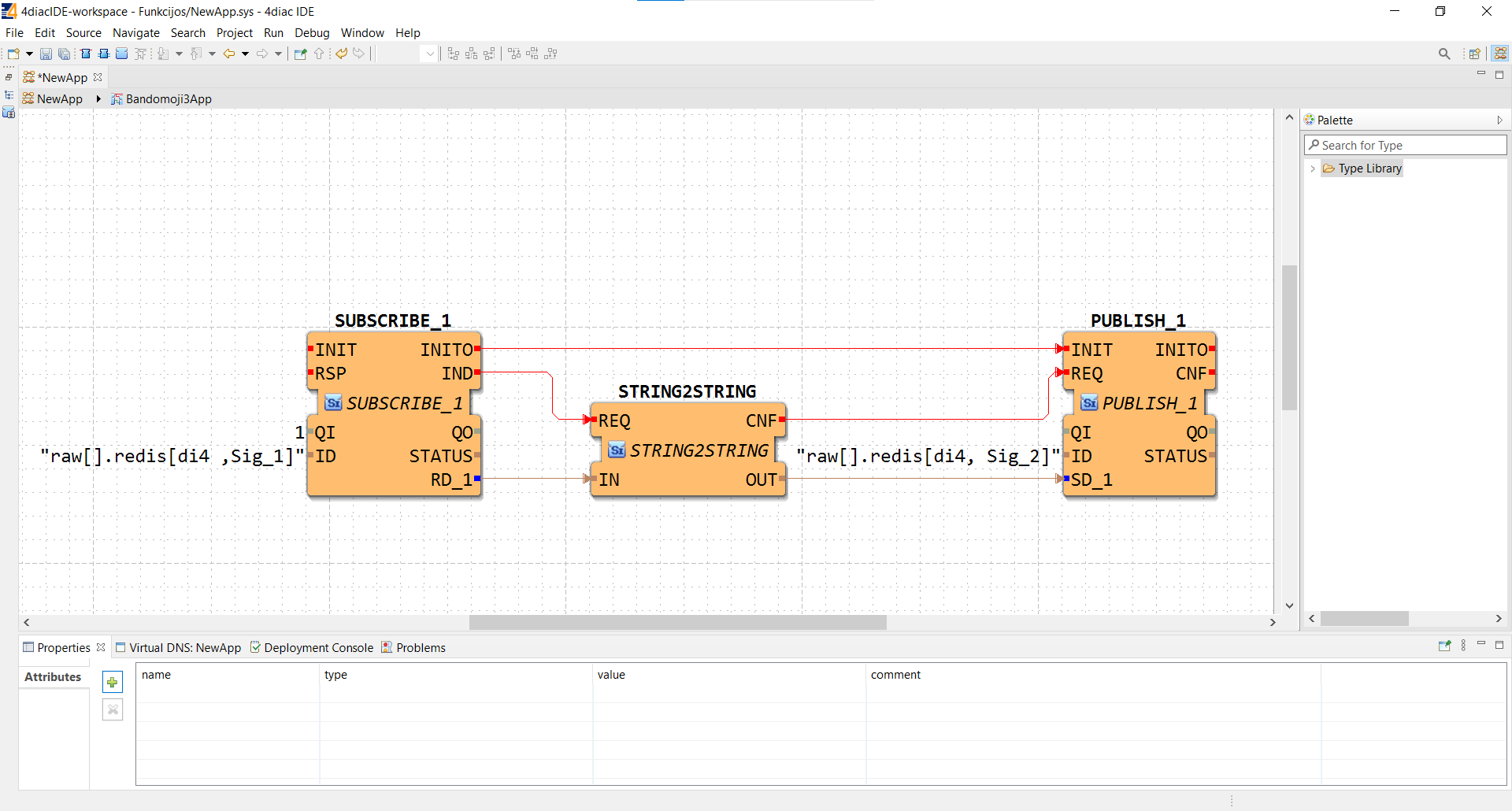# 20.4 Configuring data endpoints
To use WCC Lite as a programmable logic controller, it needs to be configured in a particular way. The PLC functionality of the WCC Lite only allows for the use of data that has been configured in the Excel configuration spreadsheet. This has been done for security purposes and to preserve transmission medium only for data that is available. Only topics defined in the configuration can post or get data. If a certain data entry exists but has not been linked to a PLC program, all calls from the PLC runtime application to the Redis database will be ignored. Therefore it is highly advised to prepare and upload the Excel configuration before using this signal in the PLC application.
Some parameters are mandatory for PLC usage. These parameters are shown in two tables below (one for Devices, and one for Signals tab). Please note that other parameters can be used as well, but are not covered because they aren’t specific to PLC functionality.
Table. Mandatory parameters for the Devices tab
| Parameter | Type | Description |
| name
| string
| User-friendly device name
|
| device\_alias
| string
| Device alias to be used in configuration
|
| enable
| boolean | Enabling/disabling of a device
|
| protocol
| string
| Selection of protocol (IEC 61499)
|
Table. Mandatory parameters for the Signals tab
| Parameter | Type | Description |
| signal\_name
| string
| User-friendly signal name
|
| device\_alias
| string
| Device alias from a Devices tab
|
| signal\_alias
| string | Unique signal name to be used
|
| source\_device\_alias
| string
| device\_alias of a source device
|
| source\_signal\_alias
| string
| signal\_alias of a source signal
|
If an upload consisting of configuration for IEC 61499 has been successful, one should be able to access a configuration stored in /etc/iec61499.json file where protocol-specific parameters are shown in a JSON format. If the file is missing, make sure you have the correct firmware version installed and haven’t made any typing errors.
Parameters mentioned earlier, namely device\_alias and signal\_alias, are the only parameters one needs to fill to bind Excel configuration to the 4Diac framework. Two types of blocks are used for data transmission - PUBLISH blocks to write data to the REDIS database and SUBSCRIBE blocks to acquire data from the database as soon as it changes its value. Both of them have an ID connection. To connect a block to a data point, one should set this pin as raw\[\].redis\[device\_alias,signal\_alias\], e.g. raw\[\].redis\[example\_plc\_device,example\_plc\_signal\_alias\]. As of version 2.0.0, the pin values must be surrounded by double commas.
Examples with SUBSCRIBE and PUBLISH function blocks are shown in the images below.
Subscribe and publish examples in the older versions[](https://wiki.elseta.com/uploads/images/gallery/2020-10/image-1602661793915.png)
Subscribe and publish examples in the newer versions (from 2.0.0)
[](https://wiki.elseta.com/uploads/images/gallery/2023-08/image-1691056876637.png)
Outputs of variable type ANY cannot be directly wired to inputs of the same type and therefore need to be explicitly typed using transitional function blocks.
No more than 20 tags should be published over 5 seconds, as this may overfill the queue. A ”publish only on change” policy is advised.
Currently, only PUBLISH\_1 and SUBSCRIBE\_1 function blocks are supported.
The functionality of the subscribe function is dependent on the presence of the "F\_STRING\_TO\_" function block, for example (F\_STRING\_TO\_REAL). Likewise, the publish function's proper operation relies on the availability of the "F\_ \_TO\_STRING" FB, for example (F\_REAL\_TO\_STRING).
If every step until now has been successful, the user can now proceed to debug the PLC application.